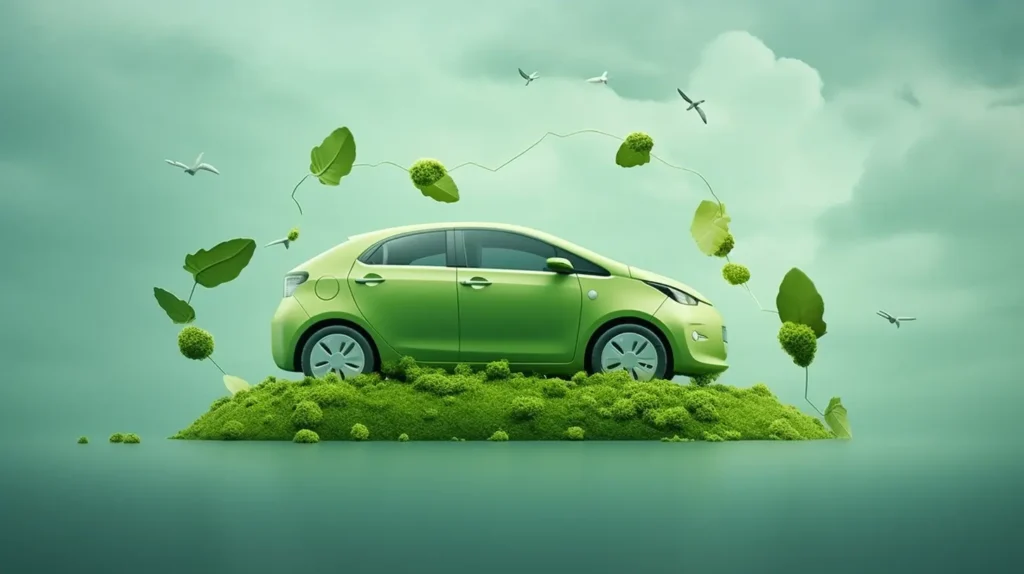
Caring for your car doesn’t just mean keeping it clean and running smoothly—it also means thinking about the impact your choices have on the environment. From cleaning supplies to protective coatings, the products you use can affect not only your vehicle’s performance but also the planet. Fortunately, eco-friendly options are becoming more widely available, allowing you to keep your car in top shape without compromising your values.
In this blog, we’ll explore how to choose environmentally responsible products for your vehicle and highlight ways you can reduce your ecological footprint while maintaining your ride.
Why Eco-Friendly Vehicle Products Matter
Cars already have a significant environmental impact, from fuel consumption to emissions. While not all of us can switch to an electric vehicle overnight, we can still make conscious decisions about the products we use. Choosing environmentally responsible options helps to:
- Reduce chemical pollution in water and soil.
- Limit waste by using longer-lasting products.
- Improve fuel efficiency and vehicle performance.
- Support companies committed to sustainability.
It’s about making small, intentional choices that add up over time—both for your car and the planet.
1. Start with Eco-Friendly Cleaning Supplies
Traditional car cleaning products often contain harsh chemicals that are harmful to the environment and your health. When rinsed off, these chemicals can seep into the ground or run into storm drains, polluting local waterways.
Instead, look for biodegradable car soaps, waterless wash solutions, and microfiber cloths that reduce water waste. These eco-friendly options are gentle on your car’s surfaces while being kind to the earth.
2. Consider Sustainable Protective Coatings
Protective coatings are a great way to extend your car’s lifespan and reduce the need for frequent washes or paint repairs. However, not all coatings are created equal. Some use harmful solvents or materials that aren’t environmentally friendly.
One innovative option to consider is Borophene coating, a material known for its remarkable strength and durability. Beyond protecting your car from scratches and oxidation, it also contributes to longer-lasting surface protection—meaning fewer reapplications and less product waste over time. By choosing advanced, efficient solutions like this, you’re not only preserving your vehicle but also making a greener choice.
3. Opt for Low-VOC Products
Volatile Organic Compounds (VOCs) are often found in paints, cleaners, and protective sprays. These compounds release harmful gases into the atmosphere, contributing to air pollution and health problems.
When shopping for vehicle care products, look for labels that specify “low-VOC” or “VOC-free.” They perform just as effectively without releasing toxic chemicals into the environment.
4. Think Long-Term with Coatings and Waxes
Many car owners turn to waxes and sealants to protect their paint, but these often require frequent reapplication. More durable coatings not only provide better protection but also reduce the frequency of applications—saving both money and resources.
For example, 9H Ceramic coating is a popular choice for its superior durability and resistance to scratches, UV rays, and chemicals. Because it lasts for years rather than months, you’ll use fewer products over time, reducing waste and lowering your overall environmental impact.
5. Choose Recyclable Packaging
It’s easy to overlook the packaging of car care products, but it plays a big role in sustainability. Whenever possible, choose products packaged in recyclable bottles or refillable containers. Some brands even offer bulk refills, cutting down on single-use plastics and reducing your carbon footprint.
6. Prioritize Non-Toxic Tire and Interior Cleaners
Tires and interiors often require specialized cleaning solutions, but many of these contain toxic chemicals. Look for water-based, non-toxic formulas that are safe for you, your passengers, and the planet. These alternatives are equally effective at removing grime without the environmental drawbacks.
7. Reduce Water Waste
Washing your car at home can waste gallons of water. If you want to be more eco-conscious, consider waterless car wash sprays that require little to no water. Another option is to use commercial car washes that recycle water, as they typically use less than washing in your driveway.
8. Support Eco-Conscious Brands
Beyond individual products, it’s worth paying attention to the companies behind them. Many automotive care brands are now committed to sustainability, using renewable energy in manufacturing, reducing plastic use, or donating to environmental causes. Supporting these businesses amplifies your positive impact.
9. Think About Fuel Efficiency Products
Eco-friendly doesn’t stop at cleaning supplies. Additives and lubricants that improve fuel efficiency can also reduce emissions and extend engine life. Just be sure to choose products that are certified safe for your vehicle and formulated with environmentally responsible ingredients.
10. Adopt Eco-Friendly Habits Alongside Products
While choosing the right products is important, your habits matter too. Simple practices like driving smoothly, maintaining proper tire pressure, and sticking to a regular maintenance schedule can drastically improve fuel efficiency and reduce your car’s environmental footprint. Pairing sustainable products with responsible driving habits is the best way to make a difference.
Final Thoughts
Caring for your car doesn’t mean compromising your values. By choosing eco-friendly cleaning supplies, long-lasting protective coatings, and low-VOC formulas, you can keep your vehicle looking great while reducing your environmental impact. Innovative solutions now make it possible to achieve both performance and sustainability—today’s technology ensures you don’t have to sacrifice one for the other.
Small, intentional changes in the products you choose and the habits you adopt can add up to a big difference, helping you protect your investment and the planet at the same time.


